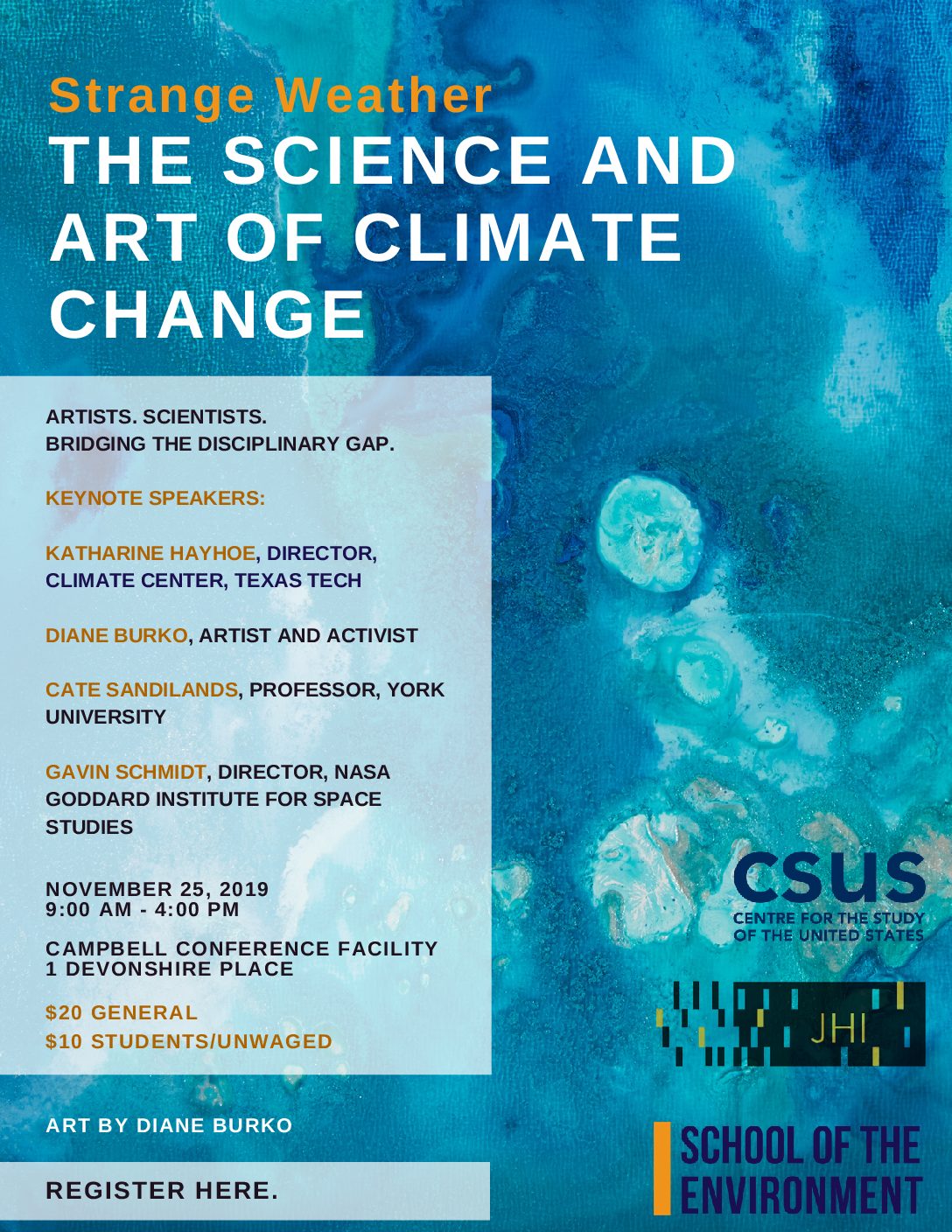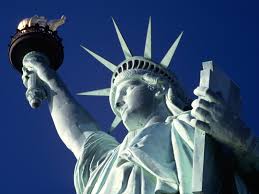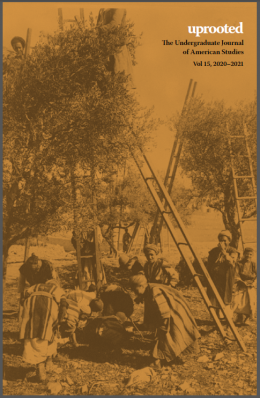Strange Weather: The Science and Art of Climate Change
– November 25, 9:00 – 4:00 PM
Campbell Conference Facility, Munk School of Global Affairs & Public Policy |1 Devonshire Place
General Admission $20.00 | Students/Unwaged $10.00
Without artists and humanists, science is frequently lost in translation, while artistic work that disregards science risks irrelevancy. This one day symposium will bring together climate scientists, humanists and artists to bridge this disciplinary gap. In partnership with co-sponsors the Jackman Humanities Institute (JHI) and the Centre for the Study of the United States (CSUS), the event will welcome guest scholars and artists who are committed to – and practiced in – the current paradigm shift to less siloed climate change thinking.
For more information and to register click here.
About this Event
Climate change is often framed as an exclusively scientific issue: a matter of rising carbon dioxide levels, decreasing arctic ice and species extinction. But humanists and artists also grapple with this environmental crisis, and today deeply engaged, thought-provoking and artistically savvy responses to climate change are showing up in galleries, concert halls and theaters as well as in universities across the globe. Indeed, much recent art deftly incorporates scientific research and methodologies, such as Philippe Squarzoni’s graphic novel Climate Changed, Mel Chin’s fine art app ‘Unmoored,’ and Daniel Crawford’s string quartet piece “Planetary Bands, Warming World”. Too often climate science and environmental humanities travel two parallel tracks, functioning as concurrent but not collaborative projects. Conjoining the two is a force amplifier.
This one day symposium will bring together climate scientists, humanists and artists to bridge this disciplinary gap. In partnership with co-sponsors the Jackman Humanities Institute (JHI) and the Centre for the Study of the United States (CSUS), the event will welcome guest scholars and artists who are committed to – and practiced in – the current paradigm shift to less siloed climate change thinking.
The symposium will feature artists and humanities scholars in dialogue with scientists. Speakers include:
- Katharine Hayhoe, an atmospheric scientist at Texas Tech, is engaged in a conceptually similar project, as she strives to develop better ways of translating climate projections and bridge the gap between scientists and stakeholders.
- Diane Burko – whose visual art incorporates scientific data – will discuss her use of coral reef bleaching metrics in aestheticized images of underwater beauty.
- Cate Sandilands, of York University’s Environmental Studies program – proposes new solutions to a persistent problem: how to effectively communicate environmental crisis to a wide audience. Sandilands believes narrative is key: “Public climate change stories shape how we understand the present, imagine the future, and conceive of possible interventions between the now and the then.”
- Gavin Schmidt, of the NASA Institute for Space Studies, pairs his work on climate change drivers with scientific context for pop culture discussions of environmental crisis.
- Madhur Anand, a poet and a professor of ecology and environmental sciences at the University of Guelph, where she mixes poetic and scientific approaches to articulating current and impending crises.
- Paul Kushner, an atmospheric physicist at the University of Toronto, studies the links between ice, snow, and changing atmospheric circulation, while advocating for scientists to speak up about the risks and realities of climate change.
- Bhavani Raman, a JHI fellow and historian at the University of Toronto, who studies the history of colonialism and environmental law, with a particular focus on South Asia, such as in her exploration of the geographies of coastal flooding in Chennai.
‘The Science and Art of Climate Change’ will extend the reach of ‘Strange Weather’ beyond 2019-2020. This symposium will be a key step in the School of the Environment’s exploration – evident in April 2019’s cross-disciplinary colloquium ‘Imagining a Post-Carbon World’ – of better integrating humanists into the School. To this end, the event will explore both theories of cross-disciplinary work and methodological questions of how exactly to enact such a timely and productive practice.
If you require accommodation please contact us at environment@utoronto.ca by November 18, 2019.


